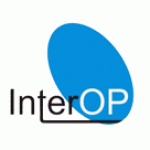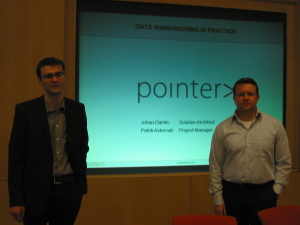Today Hans Weigand from Tilburg University gave a seminar on Adaptive Service Oriented Architecture. Hans has also been visiting us this week for continuing our previous work on service modelling and management. In particular, we have been discussing how services can be analyzed using REA and value modelling.
New Project on Business and Process Models in Healthcare
SYSLAB has got a new project approved by Vinnova
Visualisations of patient centred process and business models in health and social care
New Book on Information Systems Engineering – Dedicated to Benkt Wangler
Eva Söderström at University of Skövde and I are editors of a new book, Information Systems Engineering: From Data Analysis to Process Networks, published by IGI Global. The book presents the most current research on existing and emergent trends on conceptual modeling and information systems engineering, bridging the gap between research and practice by providing a much-needed reference point on the design of software systems that evolve seamlessly to adapt to rapidly changing business and organizational practices. The chapters in the book, written by acknowledged experts in the field, cover all of the issues introduced above ranging from analysis of data models over methods for participative modeling to the design of process and value networks. The book is dedicated to Benkt Wangler, at his retirement from University of Skövde, who has been a portal figure of the information systems area in Sweden for decades.
Project proposal: Vector space representations of textual content
Today I handed in a project proposal to the Swedish Research Council (Vetenskapsrådet). Collaborating with me on this proposal are Magnus Rosell and Viggo Kann at KTH CSC as well as Magnus Sahlgren, Jussi Karlgren and Oscar Täckström at SICS. The title of the project is Vector space representations of textual content.
Abstract: Since the 1960s vector space models have been used extensively for representation of semantics, especially in information-retrieval systems such as Google. These vector spaces are usually multi-dimensional and the terms and documents are represented by very large matrices. There is no greater regard to context. For instance, how a term occurs in other documents is almost completely disregarded. Texts are thus viewed as mere bags-of-words.
Much of the research so far has either focused on the application of these representations on specific tasks, or on the efficiency of this application by, for example, reducing the dimensionality of the original space in some way. This project proposes the study of vector space representations of textual content in a more systematic manner.
We have identified two main tasks. One is to explore the notion of intrinsic dimensionality and the spatial metaphor often used in describing “likeness” between terms and documents. The other task is that of moving from a bag-of-words representation to a more informed document space, modeling more than just the cooccurrence of lexical items within documents. These models will be systematically validated on a diverse array of tasks and well established test sets with built-in success criteria.
A better representation of textual content is interesting in itself, but will also lead to better underlying models that will improve useful applications, such as search engines and text summarization.
INTEROP Master Course in Stockholm
In the week 2 April – 6 april, 18 students from Bordeaux (France), Harbin (China), Lille (France), Stockholm (Sweden), and Valencia (Spain) participated in a master level course on interoperability in Stockholm. The students learned about Ontologies for Interoperability and Models Morphisms from the teachers Vandana Kabilan and Fulvio d’Antonio. More information on the course can be found here. The course week was arranged under the auspieces of the INTEROPNetwork of Excellence.
A guest lecture in Data Warehousing
Last Friday, 16 of March 2007, Patrik Astervall and Johan Dahlin from Pointer Ltd visited DSV and gave a guest lecture for the students joining the Data Warehousing unit. Patrik and Johan introduced briefly Pointer Ltd, presented a case from the industry, shared some of their experiences as developers of data warehousing solutions, and gave their view on the current and future development in the area.
Thanks Patrik and Johan for an interesting and inspiring lecture!
Trivia: Pointer Ltd (www.pointer.se) is one of the largest consultant companies in Data Warehousing in Sweden. It was started in 2000 by Hellen Wohlin and Anna Strid and has today more than 80 employees.


